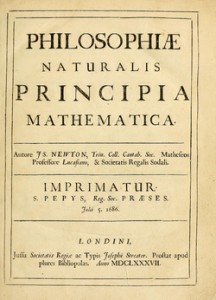 Isaac Newton wrote three laws in Philosophiæ Naturalis Principia Mathematica (Mathematical Principles of Natural Philosophy). Published in 1687. Isaac Newton invented calculus among other things, but those three laws of motion are learned by many school students.
Isaac Newton wrote three laws in Philosophiæ Naturalis Principia Mathematica (Mathematical Principles of Natural Philosophy). Published in 1687. Isaac Newton invented calculus among other things, but those three laws of motion are learned by many school students.
The language of science often has to be very specific to be practical. So the first law includes the specification of an inertial reference frame. That can be important, but chances are you do not need to worry about exactly what that part means if you are not an engineer or scientist.
Sometimes it can be better to think about the principles in more understandable language though. The ideas can be useful, but sometimes the complex language makes them harder to grasp. Between the options of understanding an idea somewhat and not understanding it at all, I would say the first option can be better.
The first law basically says that an object tends to stay at rest or if it is already in motion, it tends to continue to move as it was. Unless a force acts upon the object. This idea is known as ‘inertia’.
Sometimes people say they ‘wish’ they could play saxophone or wish they could dance, etc. A wish does not really have force. Actions have force.
So if you would like to sound better on the saxophone, you need to take action.
Check out this page to get some ideas on things to do, https://saxstation.com/steps



Leave a Reply